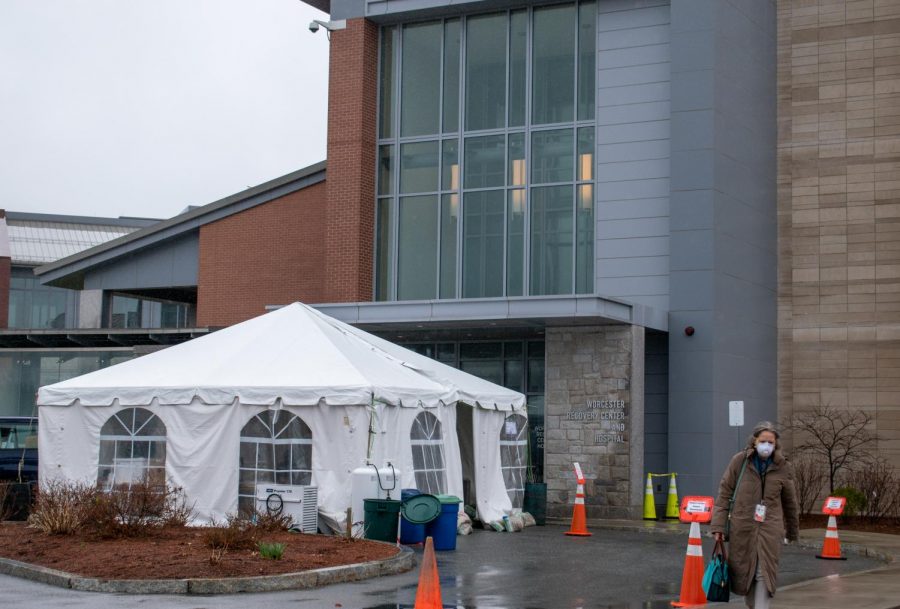Students are flocking back to the University of Massachusetts for the first time in over a year, and I think we can all agree on two things: this is amazing, and weird. There’s a nervous energy around campus that comes with the excitement of a new semester. It’s a wonderful thing, but will it last? COVID-19 cases are on the rise nationwide while UMass students pack into classrooms with strangers and eat in crowded dining halls. Are we doomed to the same fate as last year: switching back to remote learning? There’s one measure that UMass must implement if we stand a chance at a normal semester: mandatory, weekly COVID tests. Without frequent, community-wide testing, we won’t know if we have a problem until it’s too late.
Health officials refer to this type of weekly asymptomatic testing as screening testing, which provides data about the level of coronavirus spread. According to the Center for Disease Control’s most recent guidelines, UMass is a community that should implement screening testing, even though the campus community is mostly vaccinated. There are three factors that determine if a community should be using this method, and UMass satisfies all three.
One, we’re a community with moderate to substantial transmission. Moderate transmission means the community has 10 to 49 cases per 100,000 people, which UMass has already exceeded in the first week following move-in. Two, our community is at an increased risk of transmission, since we have numerous congregate, dorm-style living facilities and since social distancing and masking is impossible in dining halls. Lastly, we have several high-risk groups on campus, mainly older faculty members and students with autoimmune diseases.
Albeit the CDC does offer conflicting information, in saying that vaccinated people can opt out of screening testing “if feasible.” However, considering college campuses have been notorious for coronavirus outbreaks in the past, I still believe UMass should err on the side of caution.
This is UMass’s first attempt at running campus at full capacity during the pandemic, and by not requiring weekly testing, we’re walking blindly into uncharted territory.
Northeastern requires COVID testing this fall for all community members regardless of vaccination status, because “by doing testing, we will gather information in order to make the best science-based decisions we can,” according to Chancellor and Senior Vice President of Learning Ken Henderson. I believe UMass should follow in Northeastern’s footsteps to approach this uncertain school year with an eye into the potential storm.
Screening testing is recommended by the CDC, and it worked so well for us in the past year, so why did we stop? My guess is that UMass would rather not know if there’s a problem, or at least not make it publicly obvious.
In 2019, UMass shifted from emailing the entire student body when a hate incident happened on campus, to logging them on a corner of the UMass website. UMass chooses to save face instead of addressing the issue at hand, and that’s exactly what’s happening here. COVID cases will likely spike this year, but UMass wants to preserve the feeling of a happy and healthy campus, even if it’s not true.
UMass is banking on its fully vaccinated campus and mask mandate to protect our community, but that has proven insufficient in places not far from Amherst. Provincetown had a wild outbreak of COVID cases earlier this summer, even though it has one of the highest vaccination rates in the country. Three quarters of those infected in Provincetown this summer were fully vaccinated, albeit with mild symptoms or none at all. Vaccines can keep victims out of the hospital and save lives, but they’re not infallible. Breakthrough cases are becoming more frequent across the country, and we must be prepared for the fact that they could happen at UMass.
With the University’s current measures in place, we won’t know if there’s been a coronavirus outbreak until it’s already too late. Testing is a fairly unobtrusive measure that can protect us from life-altering consequences. We need to implement testing today, to avoid cancelling in-person classes later this fall.
One of the things UMass got right throughout this pandemic was its robust testing program. It provided crucial, publicly available data, that helped both officials and individuals make informed choices regarding their safety. Considering all the unknowns facing our community this year, we’d be fools to enter this year without the invaluable data provided by screening testing.
Maxwell Zeff can be reached at [email protected].




















